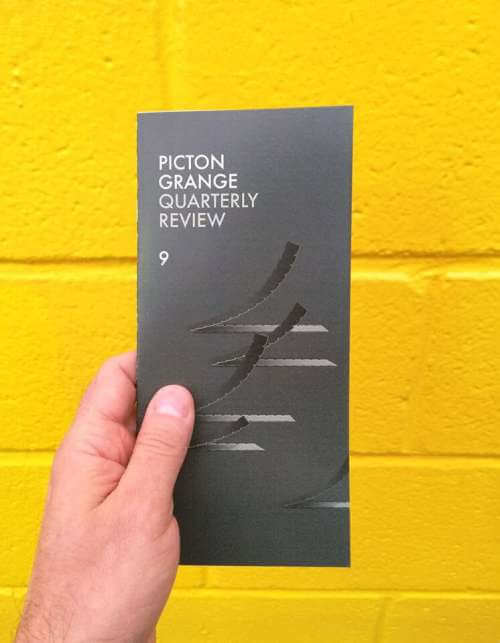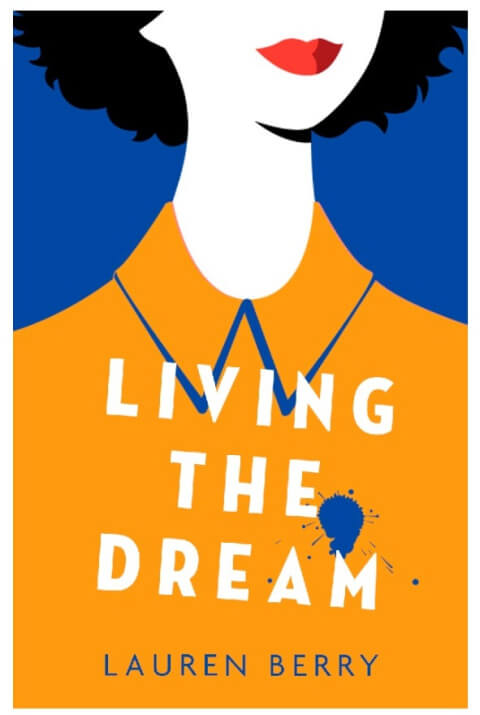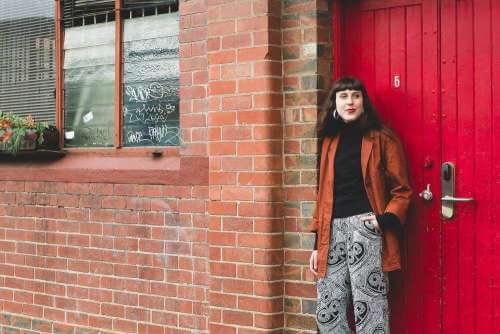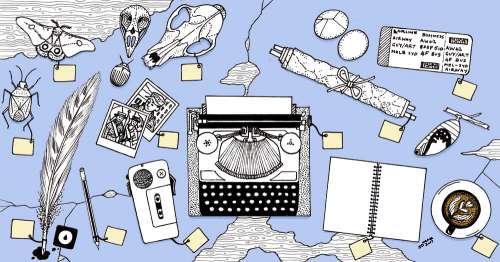 Interview
Interview
'Pub Trivia': Picton Grange
'Pub Trivia' is where we get to know our favourite Australian publications a bit better by firing off some quick questions at them. This week ...
Read MoreMolly McLaughlin speaks to author and editor Lauren Berry about writing female friendship.

Lauren Berry’s debut novel, Living The Dream, is the story of two twenty-something Londoners at the crossroads of creative success and mediocrity. Emma works at an advertising agency but dreams of finding an audience for her feminist writing, while Clementine has just returned from film school in New York and is reduced to taking her old bartending job while she tries to sell her script. Together, the two women try to navigate adulthood, romance and their careers (with the help of many glasses of wine). In addition to her work as a novelist, Berry is also the co-founder of satirical feminist zine KnockBack, which promises “no diets, no adverts, loads of jokes.” Here, she explains the process of writing Living The Dream, what she would do differently, and what's next for her.
Molly McLaughlin: How did you transition from working on KnockBack to writing the book? When did you find the time to write?
Lauren Berry: [Sarah Lewis, Hilary Hazard and I] started KnockBack straight out of university, motivated by anger and wanting an outlet for the kind of work that we were doing at the time. It was always in the back of my mind that I should be writing books, but I had to grow up as a writer and as a person before I could commit to an idea. I started an MA in narrative non-fiction and that was the gateway – because I had paid to do it I took it seriously. It’s really easy to say ‘I’m writing a book’ [but] it’s near impossible to say 'I’m not going to that important/fun/impromptu/drunken event because I’m writing a book,' because it’s too abstract.
I was working and still work in advertising on the side, but I took a year off full time work to write the final draft (or what I thought was the final draft), and did some temp jobs and house sat for people. That year took a proper commitment – I had to [use] overdrafts and credit cards and lean pretty heavily on my partner for support.
MM: Did you set out to write a novel about female friendship?
LB: Yeah, I’ve always been fascinated by the group dynamic of friend clusters. I like the way each relationship has its own idiosyncrasies and how each combination of people leads to a different kind of experience. I’ve always been interested in characters that the reader fluctuates on. It’s tough to get some of those ideas through because editors can be hell-bent on consistency, so I often got notes on ‘likeability’ of characters. But people you love do things that you dislike, people aren’t always likeable; sometimes your best mates piss you off.
I love anti-heroes in film and literature. It’s so confusing rooting for a bad guy or suddenly realising a character you’ve been behind all the way is being a dick and not liking them for it. That change in feeling is so human and more interesting than likeability.
MM: Would you agree that Living the Dream is more character driven than plot driven?
LB: It’s definitely character driven. It’s a slice of life. I didn’t write a plot piece because life isn’t plot driven. Life is a series of events. I’m obsessed with the lack of happy endings in real life, because the things that are the happy endings in literature just aren’t in real life. You don’t get married and drive off into the sunset and then just die. You have to get on with life. I am constantly surprised and disappointed by that.
Like getting a book deal for me was this huge culmination of things – I had a party, we cheered, we drank, we had this big event and it felt like the end of a journey. But the next day I had to clean up the glasses, and for the next year I had loads of meetings and edits and a shitload of work to do. Then when the book launched we had another party and again it felt like the end of a journey, but the next day I had to get up and do interviews and promote it and worry about sales and reviews and we all just carry on. There are peaks and troughs and there are major junctions in life and that’s what the book reflects.
MM: Of course, every novel draws on real life experience, but Living The Dream seems particularly relevant to your life. Did you have any qualms about sharing the characters with the world?
LB: Early on I was worried that people would think characters were based on them. In some cases I used real people as a frame to hang characters off and then filled in the details as I needed them. The editing process and the book itself shaped the characters into the people they became. For future projects though, I won’t use the same technique for creating characters. In the end using real people even as a framework is horribly limiting because you’re thinking about the character in terms of how the real person might behave or react and that isn’t helpful. It took me ages to shake the shackles and develop the characters I wanted.
MM: In your everyday life, what inspires you to write?
LB: I’m inspired by the minutia of everyday life, but I get things down on a page to make sure that an experience wasn’t wasted. That’s why my writing is so often about working boring jobs or mundane scenarios, because if you go to work, sit bored and go home, that’s a waste of a day. But if you go home and write a piece of prose about a poisoned yoghurt, or the guy on the bus who had a dog in a bag, then that shitty day is worth something, it becomes something of value. Although obviously there are also loads of days that were just shit.
MM: Do you suffer from ‘imposter syndrome’?
LB: Haha no. I think I should be way more rich and famous by now, I’ve written, like, three blogs and a whole book – Why am I still in a shitty job? Why? I have whatever that’s called. Ungrateful writer syndrome?
MM: What is the best piece of writing advice you’ve ever received?
LB: Lots of people who submit articles to KnockBack start them with paragraphs that essentially say, ‘I’m not qualified to say this and you don’t have to listen to me but…’ No, delete that. Unless you’re giving medical advice and you’re an art student.
I also like ‘In the particular lies the universal,’ a talk by James Victore, where he [gives advice] about fundamental truth and connecting with a reader. I already knew that you can connect with many people through highly individual experience, but he introduced the idea in a way that gave me a massive confidence boost.
MM: What have you read lately and loved?
LB: The End We Start From by Megan Hunter is my book of the year, it’s so haunting and beautiful and pared back. I was impressed from the first line to the last. I also thought Conversations With Friends by Sally Rooney was excellent. I loved the dulcet tone of it and the drama without hysteria she manages to convey.
MM: What are you working on now?
LB: I’m working on a series of short stories called And Then She Died. I’m practicing working with really tight plot lines and playing with ideas to see if any grab me and have legs enough to be developed. It’s also cathartic because in each story someone who has pissed me off will be ended in some way. In the first one a yoga teacher gets throttled.
I had a baby in March so I’m doing lots of staring wistfully, being knackered and trying, and failing to find the time to write. I’m also getting really good at re-wording nursery rhymes to make them modern and contextualised so when my kid starts school she’s not going to know any of the real words.

Molly McLaughlin is a freelance travel and culture writer currently based in Mexico City. Her work has appeared in publications including Fashionista, Fodor’s Travel Guide and HelloGiggles. You can find her on social media at @mollysgmcl.
 Interview
Interview
'Pub Trivia' is where we get to know our favourite Australian publications a bit better by firing off some quick questions at them. This week ...
Read More Interview
Interview
Ahead of 2017's Emerging Writers' Festival, we have a chat to Artistic Director Izzy Roberts-Orr on what to expect from her first year at th ...
Read More Interview
Interview
Canberra's Writers' Festival Heads Into Its Third Year With Noted Festival kicking off for its third year yesterday, we sat down with Digital Pro ...
Read More